Blog

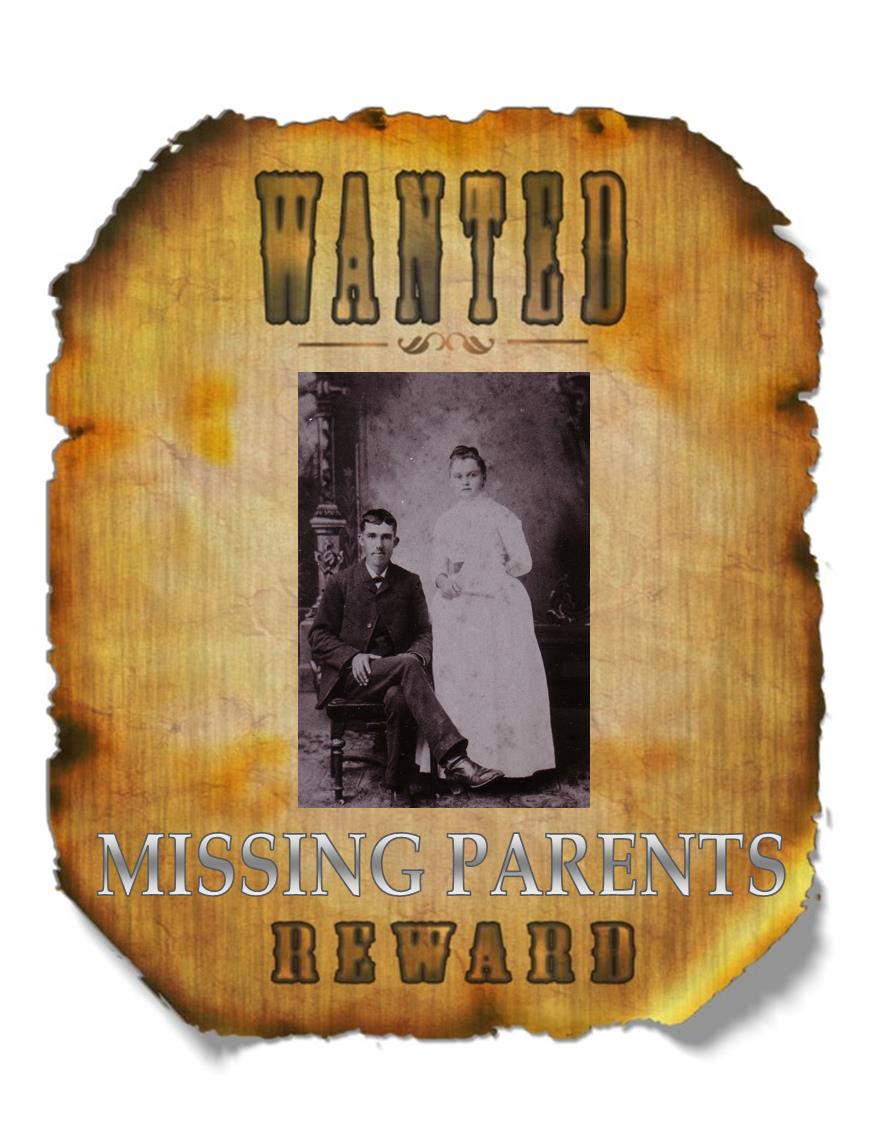
The Case of the Missing Parents Continues: 2 Powerful Research Strategies
 This Gems listener just can’t find her grandmother’s parents. It may be time to apply two powerful approaches to solving this mystery.
This Gems listener just can’t find her grandmother’s parents. It may be time to apply two powerful approaches to solving this mystery.
Recently we shared 6 sources that may name an ancestor’s parents. Afterward, I got a follow-up email from Lynn, who is still stumped:
“I read these [suggestions] but none of these were of any help with finding records on my grandmother[‘s parents]. The Social Security record didn’t list her father; as far as I can find there are no birth records for her where she claims she was born. Her father’s name isn’t on her death record because mom didn’t know what her grandfather’s name was. And her mom & ‘grandmother’ disappear from the Detroit city directory about the time she would have been born. They only show up again two years later for her grandmother and five years later for her mother. I put her ‘grandmother’ in quotes because that may be a sham: my grandmother’s mom worked for the other lady as a live-in servant.”
Lynn sounds a little discouraged! When typical record sources don’t reveal what we want to know, it’s often time to try two more advanced approaches: cluster research and DNA.
Applying Cluster Research to “Missing Parents”
I’m guessing Lynn has already beaten the bushes for ANY other records on grandma’s mom, especially marriage and divorce records. But I’m wondering whether she’s looked for other records about the woman grandma’s mom worked for. I don’t know the exact timing, but there was a huge migration to Detroit in the early 1900s. These two ladies could have been from anywhere. Chances are good they were from the same place, though. She’s definitely a “person of interest” to research. Records about this employer/grandma may lead to clues about her grandma’s own origins. So a first step may be for Lynn to research where the employer/grandma was born, and see if grandma’s family name shows up in the same place.
That concept is called cluster research, where you try to recognize little migratory groups and use other members of the group to learn more about your own ancestor of primary interest. It’s a concept I talk with Gems Editor Sunny Morton about in the November 2015 Family Tree Magazine podcast, which I host.
DNA for “Missing Parents”
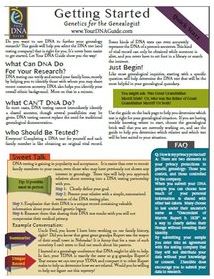 The other avenue that it may be time for Lynn to try is DNA testing. Depending on which test she takes, her results may lead to common relatives on either side of her grandmother’s mother’s family. For example, if grandma had a full-blooded brother (which may be impossible to know for sure), a DNA test on one of his male descendants may point to the identity of the unknown grandma’s dad.
The other avenue that it may be time for Lynn to try is DNA testing. Depending on which test she takes, her results may lead to common relatives on either side of her grandmother’s mother’s family. For example, if grandma had a full-blooded brother (which may be impossible to know for sure), a DNA test on one of his male descendants may point to the identity of the unknown grandma’s dad.
I recommended to Lynn that she check out our series of DNA guides written by our resident DNA expert, Diahan Southard. They will walk you confidently through the next steps in your genetic genealogy journey.
How to Get Started Using DNA for Family History Research
More Skills You Can Use to Solve Genealogy Mysteries
 Try These Two Powerful Tools for Finding Genealogy Records
Try These Two Powerful Tools for Finding Genealogy Records- Advanced Google Search Strategies for Adoptees in Genealogy Gems Premium Podcast Episode #128 (Premium website membership required)
- “Help! Why Is My Ancestor Listed Twice in the Census?”
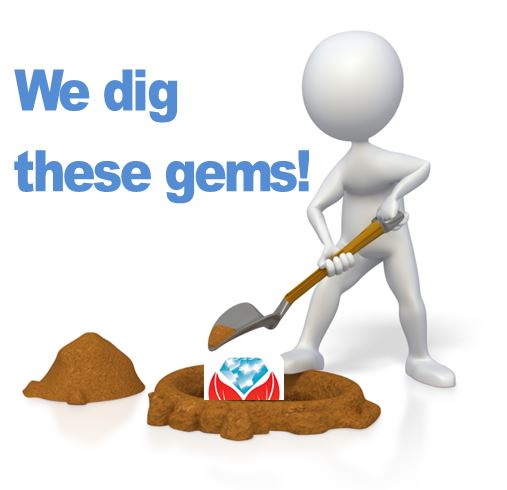
We Dig These Gems! New Genealogy Records Online
Our weekly roundup of new genealogy records online includes: the 1891 NSW Australia census;Portsmouth, England electoral registers; Frankfurt, Germany deaths; Massachusetts Revolutionary War soldiers; North Carolina probate and recent U.S. obituaries.
AUSTRALIA CENSUS. FamilySearch has added over 300k entries to its indexed records of the 1891 Australia Census for New South Wales.
ENGLAND ELECTORAL REGISTERS. Findmypast continues to expand its collection of electoral registers with nearly 200k transcripts from Portsmouth, England (1835-1873).
GERMANY DEATHS. Over half a million indexed records and accompanying images are at a new, free FamilySearch collection of death records for Frankfurt, Germany (1928-1978).
MASSACHUSETTS REVOLUTIONARY WAR. A new browsable collection of “index cards to muster rolls of soldiers who served in Massachusetts regiments during the Revolutionary War, 1775-1783″ is now searchable at FamilySearch. The card file comes from the Massachusetts State Archives in Boston.
NORTH CAROLINA PROBATE. More than a half million images and 25,000 indexed records have been added to a free collection of North Carolina estate records (1663-1979) at FamilySearch.
US OBITUARIES. FamilySearch has updated its collection of recent U.S. obituaries indexed from GenealogyBank newspaper images. Nearly 15 million records have been added. The index is free to search.
 Thank you for sharing these new genealogy records online with your fellow genealogy buddies and society members! You’re a gem!
Thank you for sharing these new genealogy records online with your fellow genealogy buddies and society members! You’re a gem!
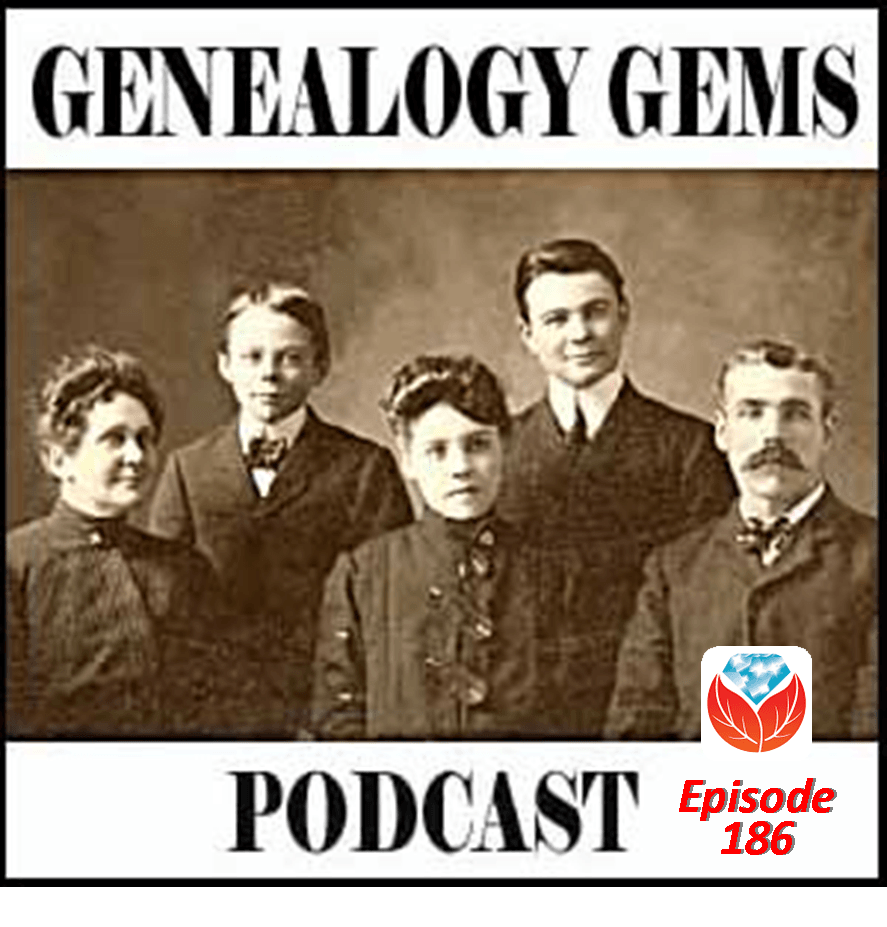
Newly Published! Free Genealogy Gems Podcast Episode 186
 Inspire your holiday season with tips on interviewing older relatives, using DNA for adoption research and more in the Genealogy Gems Podcast episode 186!
Inspire your holiday season with tips on interviewing older relatives, using DNA for adoption research and more in the Genealogy Gems Podcast episode 186!
The free Genealogy Gems Podcast episode 186 is now live. This month, we celebrate upcoming holiday family time with relatives with a special interview. Guest expert Kathy Hawkins shares suggestions and encouragement about capturing memories from our oldest relatives. I especially appreciate her insights about understanding the memories of those who suffer from dementia and Alzheimer’s.
Also in this episode, our resident genetic genealogy expert, Diahan Southard, offers her thanks for DNA connections that are helping her (and others) fill holes left by adoption in her family. Don’t miss her stories!
You’ll also hear about:
- a great new resource from MyHeritage for connecting with other researchers,
- family history poetry from two of our Gems listeners,
- letters from the Gems mailbox and
- an excerpt from our new Genealogy Gems Book Club interview, which will appear in full later this month in the next Genealogy Gems Premium podcast.
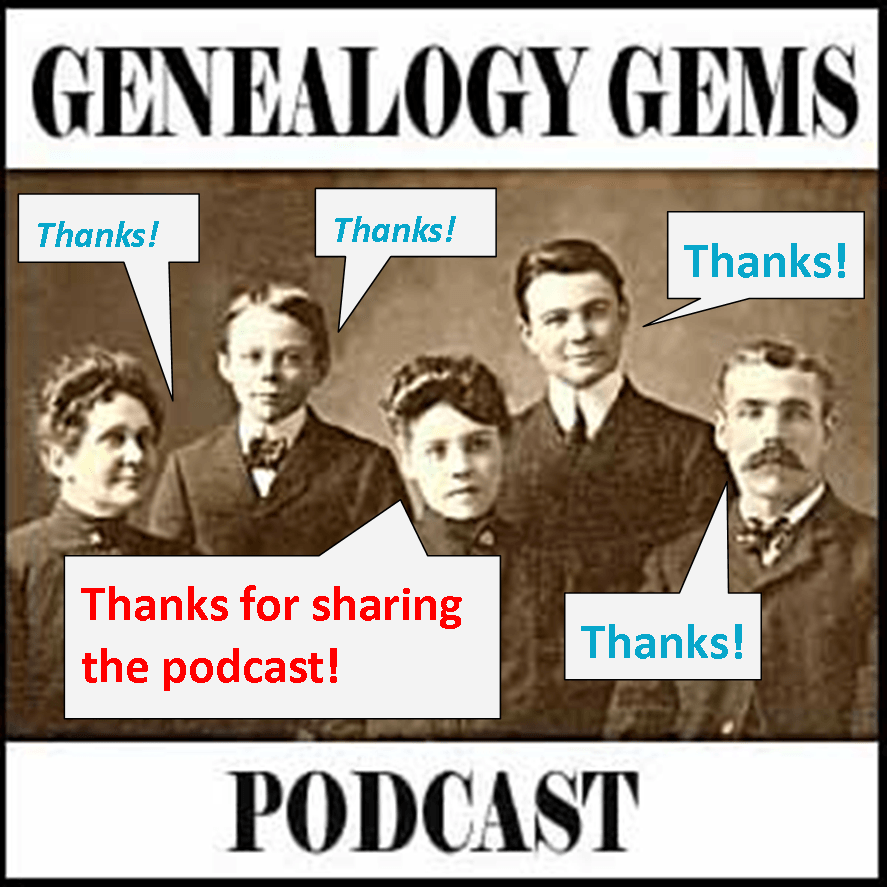 Click here to listen to Genealogy Gems Podcast Episode 186! If you enjoy it, thank you for sharing it with your friends and family by email and through your social media channels. We appreciate it when you help us spread the word about the free Genealogy Gems podcast and website!
Click here to listen to Genealogy Gems Podcast Episode 186! If you enjoy it, thank you for sharing it with your friends and family by email and through your social media channels. We appreciate it when you help us spread the word about the free Genealogy Gems podcast and website!





